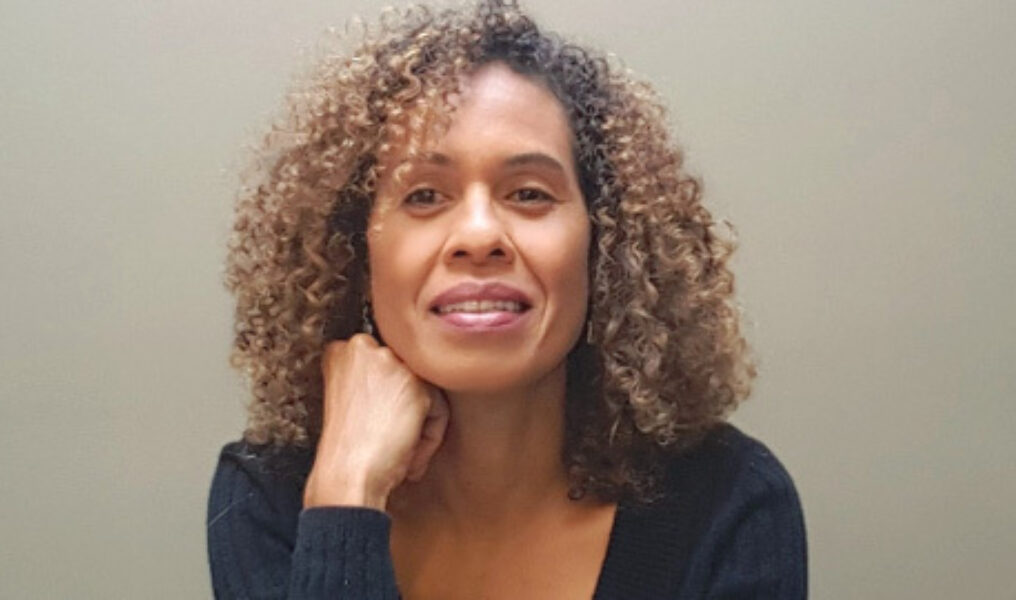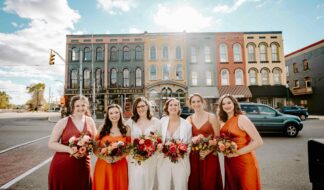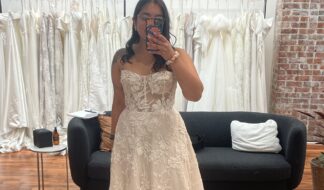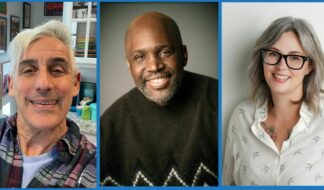BY MICHELLE E. BROWN
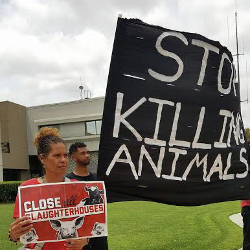
We love our pets – the dogs, cats and other critter babies that bring so much joy to our homes. We watch them on videos, take them to work or daycare and according to the American Pet Products Association in 2015, spend an estimated $60.59 billion a year for their case well-being and amusement. Despite our obvious love for all things pet, are we still guilty of species-ism?
Ask Liz Ross and the answer would be yes. She's a vegan. What's that? Many will answer "No meat. No dairy." Some might expand the definition to say it's a person who does not eat or use animal products. But for Ross, being a vegan goes beyond a dietary choice. Originally from Trinidad, Ross has lived many places but calls Los Angeles, California home. Ross is co-founder and director of Vegan Advocacy Initiative, formerly Coalition of Vegan Activists of Color, a woman-of-color-led non-profit organization. VAI is an animal advocacy and vegan food justice organization that creates events to encourage the public to consider a holistic way of thinking that upholds animal rights. Their initiatives also encourage others to view animal rights as part of the food justice and environmental justice movements to create more sustainable and fair systems.
She is also co-creator of the People of Color: Animal Rights, Advocacy and Food Justice
Conference, which takes place in Los Angeles and is organized through VAI. This conference is the first-of-its kind in the U.S. that provides a platform for speakers of color who are leaders and activists in the animal rights, vegan outreach and food justice movement. I sat down with Ross to discuss her journey from deciding to "go vegan" to her work with the VAI.
Food can be really personal. For many people when they think about home, they think about food. What made you decide to become a vegan and how did that introduce you to animal rights?
The reasons I became vegan were two things. One was that someone planted a seed in my head when I was in college. I met a guy and we became friends. He was a vegetarian and talked about the conditions of the chickens on factory farms. They are so cramped that they have a pecking order so they end up attacking each other. It's a very stressful situation and it becomes very violent. So what the people in the factory farms do is that they actually cut their beaks. The other thing he talked about was that they fed them a lot of food to the point that they would eat and then throw up and eat and then throw up.
I've seen some video on those conditions. But it affects the workers too, right?
The factory farms are actually toxic for workers as well. The workers have to wear masks. The turnover is high and because many of these people obviously are poor or undocumented they don't have the power if they complain about an issue. They can be easily fired.
So you made the change right then. He must have been pretty persuasive.
He described all that to me but I actually wasn't even hearing it because I just thought he was a cool guy. I was listening to him but I was disconnected. I have memories of my mother taking me to a local slaughterhouse when I was 5. She would literally point and say that's the chicken that I want. Then they would slit the chickens throat then gut the chicken, put it in a bag and we took it home for dinner.
So when did you go vegan?
It wasn't until I was actually living in South Florida for about eight years. I had gastric reflux disease, painful menstrual cramps and knee pain. And folks were like OK you're getting old and all that kind of stuff happens. And I thought to myself – I just started to visualize all the people in my family and around me who were over 50 in their '60s and '70s on medication and I thought to myself, "I don't want to be a person." So the way that came together was that I was cutting up a piece of chicken and the chicken leg was broken and I wondered if the chicken leg break occurred before she died or after she died. And that was when for the first time I actually started to visualize this living and breathing being with feelings. And that's when I had an aha moment.
It's really easy in these days of fast food, where we are so far away from the farm where many have never been to a butcher to select that chicken or to a slaughterhouse; where for many it's a matter of going to the market and picking up the best priced package of food – it's really easy to forget the animals and what it they go through to put that meat on the table. So what is the role of Vegan Advocacy?
What we try to do in the advocacy initiative is we bring up these discussions among people of color. We had a conference last year that was a huge success. It was the most diverse group of vegans ever seen in an environment of animal rights or vegan food justice environment. We basically provide a platform for vegans who are people of color, activists and doing work in these areas. And it was fantastic to hear how they went into their communities and had discussions with friends, family neighbors and the kinds of events that they have. You're reaching them where they are.
I think at the end of the day we want to explore the issue of us participating in a violent system. And also understanding that many of us actually mean well. We don't want to hurt animals. So why do we have a love of dogs and cats and will cry like babies if they're gone but we don't feel the same way for other sentient beings. Other animals. They care for their young. They feel pain. They feel joy.
I think it's important to connect with people where they are and then start talking about the systems of violence. When you look at these systems of oppression, you see a couple of things in common and that is that we are socialized to believe certain things on the basis of how the how we feel about certain groups that are actually not true.
So the difference is about our conditioning. We see that in all the other isms as well. It's about the conditioning, and I think once we start having discussions about the kinds of conditioning that makes us contradict our deep sense of compassion and fear. I think that's when we start to have real discussion as opposed to being judgmental and knowing that, like all the other isms, it's a process.
